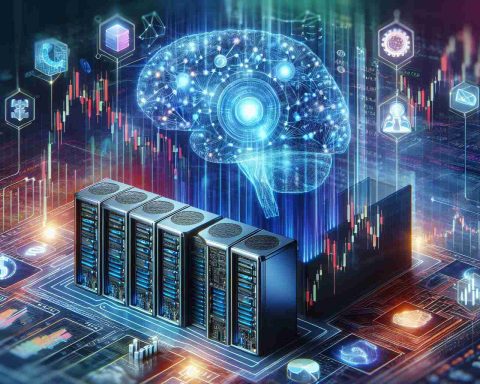Recent developments in artificial intelligence (AI) are reshaping various industries, yet they also raise significant alarm about digital security. A new study has found that over 85% of Mexicans are apprehensive about potential identity theft linked to AI advancements.
As cyberattacks become more frequent, and technologies like deepfakes and voice cloning emerge, many individuals are increasingly anxious about safeguarding their personal information. The research, conducted by The CIU with a sample of 2,019 Mexicans, reveals that 70% of respondents are aware of the dangers stemming from AI’s misuse. However, a substantial portion fails to enact necessary security measures.
A considerable number of participants expressed concern that social media accounts were the prime targets for cybercriminals, with a significant portion also worried about the vulnerability of their bank accounts. Victor Borga, the regional director at Okta, elaborated on how cybercriminals exploit these advanced technologies to perpetrate more sophisticated fraud, capable of impersonating banks or family members through deceptive techniques.
Despite a clear recognition of the risks, only a small fraction of the respondents utilize robust security features such as biometric authentication or multi-factor authentication (MFA). Experts advocate for the adoption of password-less authentication to enhance security, suggesting that individuals should also refrain from reusing passwords and consistently monitor their accounts for suspicious activities.
This critical scenario emphasizes the urgent need for increased cybersecurity awareness and practices across Mexico, particularly as AI technology continues to evolve.
Staying Secure in an AI-Driven World: Tips and Life Hacks
The rise of artificial intelligence (AI) is bringing about transformative changes across many sectors, but it also poses significant digital security risks. With increasing anxiety about identity theft and cybercrime, it’s crucial to adopt better security practices. Here are some essential tips, life hacks, and interesting facts that can help you protect your personal information in an AI-driven environment.
1. Embrace Multi-Factor Authentication (MFA)
Using Multi-Factor Authentication (MFA) can significantly bolster your account security. It often combines something you know (like a password) with something you have (like a smartphone) or something you are (like a fingerprint). While many people are aware of MFA, only a small number actually use it—make sure you’re not one of them.
2. Strengthen Your Passwords
Creating robust and unique passwords for each of your accounts is critical. Avoid using easily guessed information, like birthdays or common words. Instead, opt for longer passphrases or use a password manager. Interestingly, over 70% of people reuse passwords across different accounts, a practice that’s a major security risk.
3. Keep Software Updated
Regularly update your software, operating systems, and applications. Cybercriminals often exploit vulnerabilities in outdated software. Enabling automatic updates can help ensure that you’re always protected against the latest threats.
4. Be Wary of Phishing Attempts
With advanced AI methods, phishing scams are becoming more sophisticated. Always verify the source of emails, especially those that request personal information. Phishing attempts can often mimic trusted organizations using deepfake technology and other deceptive strategies to gain your trust.
5. Monitor Your Accounts Regularly
Keep a close watch on your financial and social media accounts for any suspicious activity. Setting up alerts for unusual transactions can help you react quickly if fraud is detected. Many people are unaware of ongoing unauthorized access until it’s too late.
6. Educate Yourself About Cybersecurity
Stay informed about the latest cybersecurity trends and threats. Much like medical or financial literacy, having a strong understanding of cybersecurity practices can greatly reduce your vulnerability. Participate in workshops or online courses to enhance your knowledge.
7. Use Biometric Authentication
Many modern devices and apps offer biometric authentication options, such as face recognition or fingerprint scanning. These methods provide an added layer of security that is difficult for cybercriminals to bypass.
Interesting Fact: Studies indicate that up to 55% of individuals believe AI tools can help fight cybercrime, yet only a small percentage actively utilize AI-powered security solutions. Leveraging technology to enhance your own digital security can be a game-changer.
These strategies underscore the importance of adopting proactive cybersecurity measures, particularly as AI technology continues to evolve. By implementing these tips, you can significantly safeguard your personal information and reduce anxieties about potential digital threats. For more resources on cybersecurity best practices, visit Cybersecurity.gov.

















